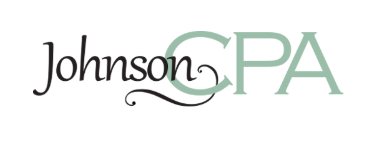
What the OBBBA Means for Individual Taxpayers: Key Changes Explained
The One Big Beautiful Bill Act (OBBBA), signed into law in 2025, brings sweeping changes to the U.S. tax landscape for individuals. Whether you’re a wage earner, a parent, a retiree, or a small business owner, the OBBBA introduces new opportunities and important updates you should know about. Here’s a breakdown of the most significant provisions and what they could mean for your tax return.
1. Lower Tax Rates and a Bigger Standard Deduction—For Good
The OBBBA makes permanent the lower individual tax rates first introduced by the 2017 Tax Cuts and Jobs Act (TCJA). The scheduled expiration after 2025 is gone, so you can expect the current rates to stick around. The standard deduction is also increased and made permanent—$23,625 for heads of household and $15,750 for singles in 2025, with future inflation adjustments.
2. Personal Exemptions and a New Senior Deduction
While the suspension of personal exemptions is now permanent, there’s a new deduction for seniors (age 65+): $6,000 per person through 2028, subject to income limits and other requirements.
3. Enhanced Child and Family Benefits
- The child tax credit is now $2,200 per child, permanently, with inflation adjustments and stricter Social Security Number requirements.
- The child and dependent care credit is more generous, with higher income thresholds.
- The adoption credit is partially refundable (up to $5,000) and indexed for inflation.
4. Changes to Deductions
- The 20% qualified business income deduction is easier to claim, with higher income thresholds and a $400 minimum deduction for active business income.
- The state and local tax (SALT) deduction cap rises to $40,000 for 2025, but will revert to $10,000 after 2029.
- The mortgage interest deduction cap of $750,000 is now permanent, and mortgage insurance premiums count as interest.
- Casualty losses can now be claimed for state-declared disasters, not just federal ones.
- Most miscellaneous itemized deductions remain suspended, except for expanded educator expenses.
- A new formula limits itemized deductions for high earners.
5. New Deductions for Working Americans (2025–2028)
- Up to $25,000 of qualified tips can be deducted, with some restrictions.
- Up to $12,500 ($25,000 joint) of qualified overtime pay is deductible.
- Up to $10,000 of interest on loans for new U.S.-assembled personal vehicles is deductible.
All of these are subject to income phaseouts and specific eligibility rules.
6. Charitable Giving Gets a Boost
- The above-the-line charitable deduction is now $1,000 ($2,000 joint) and permanent.
- Only contributions exceeding 0.5% of your AGI are deductible, but you can carry forward excess amounts.
7. Education and Savings Incentives
- 529 accounts can now be used for more K-12 and postsecondary expenses, and ABLE account limits are increased.
- Employer-paid student loan benefits are now permanently tax-free and indexed for inflation.
8. Estate and Gift Tax Relief
The estate and gift tax exemption jumps to $15 million (indexed for inflation) for estates and gifts after 2025.
9. Other Notable Changes
- The Alternative Minimum Tax (AMT) exemption and phaseout thresholds are permanently increased.
- Wagering losses are now limited to 90% of losses, only up to the amount of gains.
- The moving expense deduction remains suspended, except for intelligence community employees.
10. New Pilot Programs
- “Trump Accounts” are new tax-advantaged accounts for children under 18, with government-funded pilot contributions for newborns and special rules for contributions and rollovers.
In Summary
The OBBBA cements many of the tax cuts and benefits from the TCJA, while adding new deductions and credits for families, workers, and seniors. Some provisions are temporary (2025–2028), but many are permanent. As always, many of these benefits are subject to income phaseouts and new reporting requirements.
If you have questions about how these changes might affect your personal tax situation, consult a tax professional or reach out for more information. The OBBBA is designed to provide broad-based tax relief and modernize the tax code for individuals—make sure you’re taking advantage of what’s available to you!
